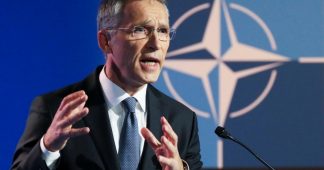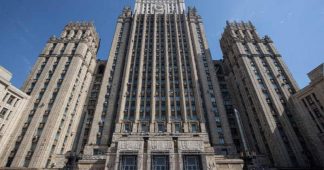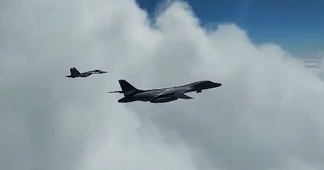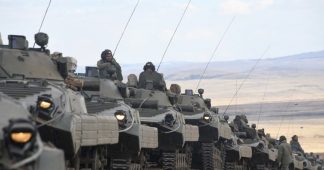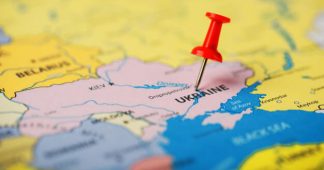Oct. 24, 2021
Photo : Russian Ministry of Defence
On Friday, German Defence Minister Annegret Kramp-Karrenbauer accused Moscow of a host of malign activities, and urged NATO to make clear to Russia its willingness to use military force. Moscow has repeatedly expressed concerned about the Western alliance’s expansion and the buildup of conventional and strategic capabilities on Russia’s borders.
Russian Defence Minister Sergei Shoigu has responded to his German counterpart’s comments on the need for NATO to take a tough stance to “contain Russia,” warning that the German politician is obliged to know what happened the last time foreign forces engaged in a buildup on Russia’s borders.
“Against the backdrop of calls for the military ‘containment’ of Russia, NATO is consistently pulling its forces toward our borders. The German defence minister must know well how this ended for Germany and Europe in the past,” Shoigu said on Saturday.
The defence minister stressed that security in Europe can only be reached if it is mutual and does not infringe on Russia’s interests.
“But NATO is not prepared today for an equitable dialogue. Furthermore, the realisation of NATO’s efforts to ‘deter’ Afghanistan ended in a catastrophe which is now being dealt with by the entire world,” Shoigu stressed, referring to the chaotic mid-August collapse of the NATO-backed Afghan government and military.
The defence minister’s comments follow German defence chief Kramp-Karrenbauer’s interview with German radio on Friday, in which she accused Russia of a host of malign activities – from the alleged “systematic” violation of the airspace of countries bordering on the Baltic and Black Seas, to cyberattacks and supposed attempts to foment a migration crisis on the European Union’s eastern frontier.
NATO, the defence minister suggested, must “make it very clear to Russia” that its “deterrence doctrine” means using whatever means are necessary to stop Moscow from attacking allies or partners. When asked whether such “deterrence” includes the threat of using nuclear weapons, Kramp-Karrenbauer emphasised that “that is the way of deterrence.”
Moscow has repeatedly said that it has no aggressive intentions against any country, and that its manoeuvres in neutral waters and airspace near sensitive areas are carried out in strict accordance with international law.
At the same time, Russian officials have expressed deep concerns about NATO’s encroachment on its borders. On Thursday, Russian President Vladimir Putin said Pentagon chief Lloyd Austin’s recent visit to Kiev has effectively paved the way for Ukraine joining NATO, and warned that the bloc’s activity in the country “poses a threat to Russia.”
Despite a verbal commitment to Soviet leader Mikhail Gorbachev in 1990 not to expand “one inch” east beyond the borders of a reunified Germany, NATO has since incorporated every single member of the now defunct Soviet-led Warsaw Pact alliance, plus three former Soviet republics, and four republics of the former Yugoslavia.
NATO has also dramatically beefed up the contingent of troops near Russia’s borders on a rotational or permanent basis since 2014, and has held drills simulating a direct conflict with Russia. Moscow has expressed particular concern over the US construction of Aegis Ashore missile defence facilities in Poland and Romania, believing that the launchers used at these sites could easily be converted to fire conventional or nuclear-tipped Tomahawk cruise missiles into Russia.
On Monday, Russia suspended the work of NATO’s information office in Moscow, and the operation of Russia’s own permanent mission to the alliance, over the bloc’s decision to revoke the accreditation of eight employees of the Russian mission to NATO. On Friday, Russian Deputy Foreign Minister Alexander Grushko accused the bloc of “sliding into Cold War schemes” and suggested that normal diplomatic relations with the alliance were impossible amid the hostile measures it has taken against Moscow.
Published at sputniknews.com
We remind our readers that publication of articles on our site does not mean that we agree with what is written. Our policy is to publish anything which we consider of interest, so as to assist our readers in forming their opinions. Sometimes we even publish articles with which we totally disagree, since we believe it is important for our readers to be informed on as wide a spectrum of views as possible.
